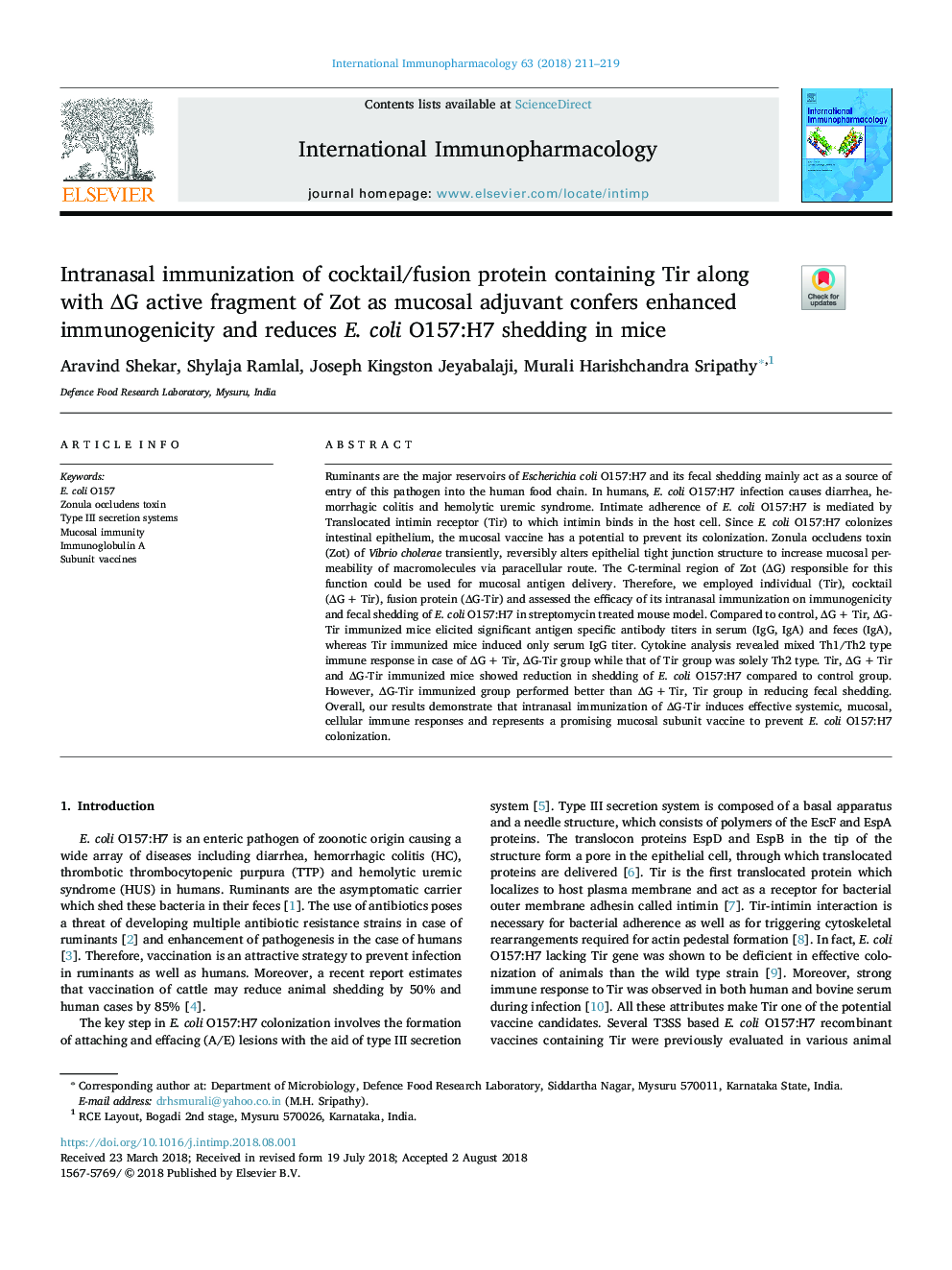| Article ID | Journal | Published Year | Pages | File Type |
|---|---|---|---|---|
| 8530916 | International Immunopharmacology | 2018 | 9 Pages |
Abstract
Ruminants are the major reservoirs of Escherichia coli O157:H7 and its fecal shedding mainly act as a source of entry of this pathogen into the human food chain. In humans, E. coli O157:H7 infection causes diarrhea, hemorrhagic colitis and hemolytic uremic syndrome. Intimate adherence of E. coli O157:H7 is mediated by Translocated intimin receptor (Tir) to which intimin binds in the host cell. Since E. coli O157:H7 colonizes intestinal epithelium, the mucosal vaccine has a potential to prevent its colonization. Zonula occludens toxin (Zot) of Vibrio cholerae transiently, reversibly alters epithelial tight junction structure to increase mucosal permeability of macromolecules via paracellular route. The C-terminal region of Zot (ÎG) responsible for this function could be used for mucosal antigen delivery. Therefore, we employed individual (Tir), cocktail (ÎGâ¯+â¯Tir), fusion protein (ÎG-Tir) and assessed the efficacy of its intranasal immunization on immunogenicity and fecal shedding of E. coli O157:H7 in streptomycin treated mouse model. Compared to control, ÎGâ¯+â¯Tir, ÎG-Tir immunized mice elicited significant antigen specific antibody titers in serum (IgG, IgA) and feces (IgA), whereas Tir immunized mice induced only serum IgG titer. Cytokine analysis revealed mixed Th1/Th2 type immune response in case of ÎGâ¯+â¯Tir, ÎG-Tir group while that of Tir group was solely Th2 type. Tir, ÎGâ¯+â¯Tir and ÎG-Tir immunized mice showed reduction in shedding of E. coli O157:H7 compared to control group. However, ÎG-Tir immunized group performed better than ÎGâ¯+â¯Tir, Tir group in reducing fecal shedding. Overall, our results demonstrate that intranasal immunization of ÎG-Tir induces effective systemic, mucosal, cellular immune responses and represents a promising mucosal subunit vaccine to prevent E. coli O157:H7 colonization.
Keywords
Related Topics
Life Sciences
Immunology and Microbiology
Immunology
Authors
Aravind Shekar, Shylaja Ramlal, Joseph Kingston Jeyabalaji, Murali Harishchandra Sripathy,
